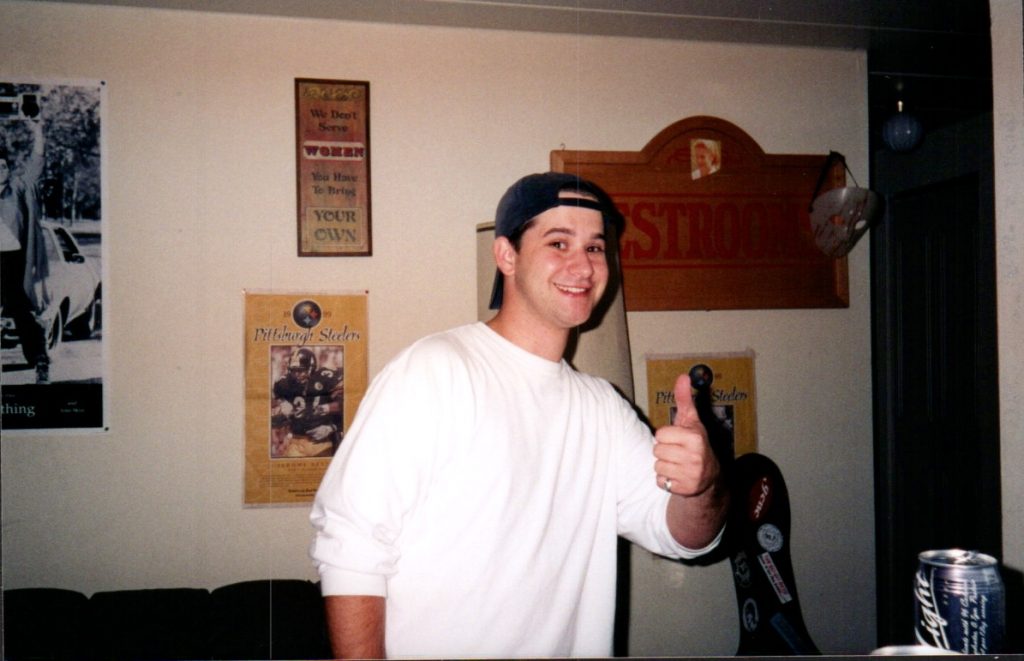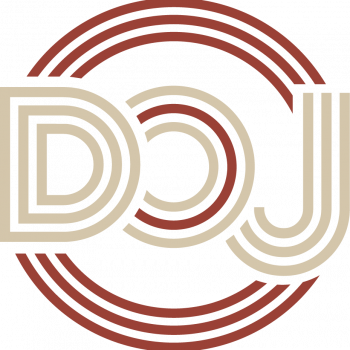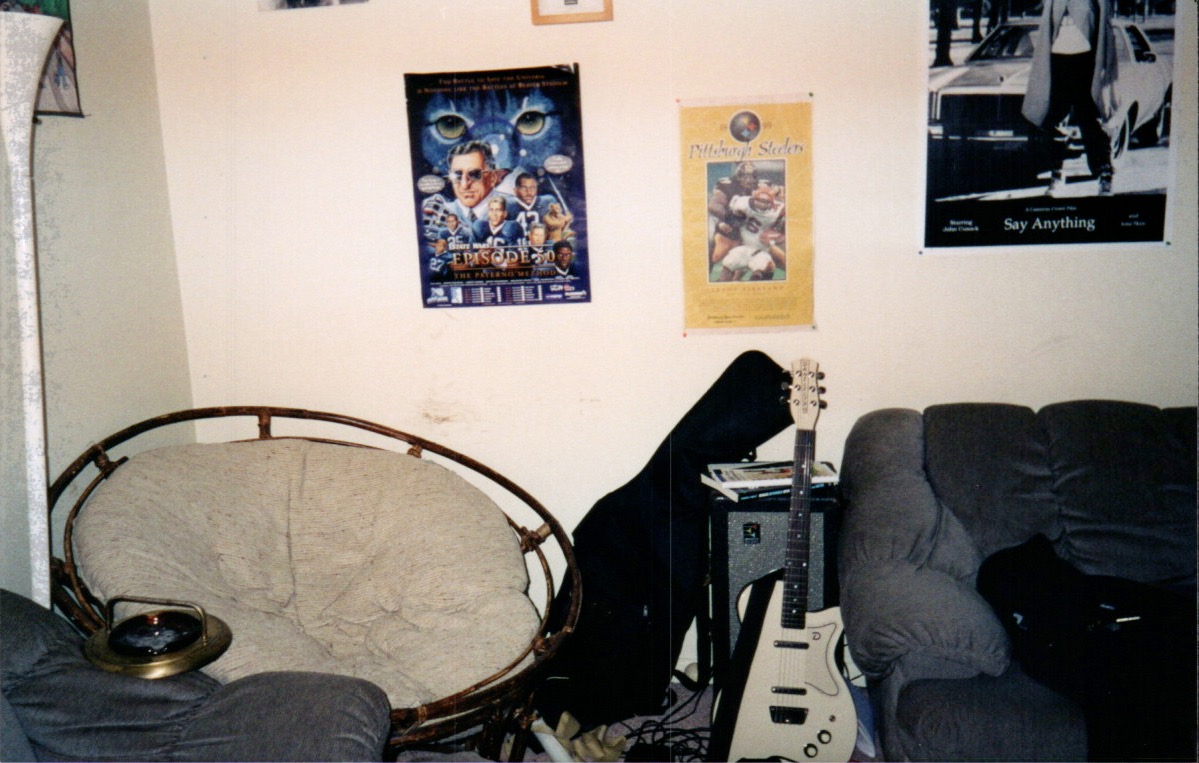Tom and I lived in a one-bedroom apartment on Beaver Avenue with another guy named Anthony during our time at Penn State. Park Hill, second floor, Apartment 219, just down the street from the buzz and chaos of Beaver Canyon. Nobody used the front entrance of the building. Everyone came through the rusty steel side door off Beaver, half-latched at best, slamming shut all day long. Security wasn’t exactly a priority in the ’90s.
The hallway carpet had once been a deep red but was long since worn to black from years of student traffic. It always smelled a little off: cigarettes, burnt food from a microwave, maybe some sort of cleaner or laundry smell, but it was where we hung our hats. From those windows, we could hear the sounds of both College and Beaver Avenues. A hum of a thousand other lives colliding around us.
Space Occupation
Tom was the grounded one. He kept up with classes, stayed on top of deadlines, and did the college thing the right way. I kept pace, more or less, registered for courses, showed up when I had to, but my mind was always somewhere else. I used to joke that my major was “Space Occupation,” because that’s what I was doing most of the time: just existing between the things that really mattered to me.

What mattered most was the music
I spent every free hour at the college radio station, digging through CDs, cutting tracks in a primitive DAW, lining up playlists for my afternoon show. It was the only place on campus where time disappeared. When I wasn’t there, I was back at the apartment with a guitar in my hands, chasing down ideas, making noise, figuring it out. That was my real education.
When bands we loved came through town, playing the Crowbar was typical. It was the local rock club. Dark, sticky, loud, and over time, sacred. It wasn’t just a venue; it was the venue. We saw The Tragically Hip, Guster, The Mighty Mighty Bosstones, The Pietasters, The Toasters, Helmet, Jimmie’s Chicken Shack, and The Afghan Whigs, and so many more… take that stage. Those shows stayed with us. They helped shape who we were, what we wrote, and what we believed music could be.
The Crowbar
So coming back years later, playing the Crowbar, and being on that same stage with Down on Jane felt like stepping into a dream we didn’t know we still had. We weren’t kids anymore. We had jobs, obligations, histories. But when I walked onto that stage and looked around, everything else fell away. This gig, compared to our very first gig, was a place none of us ever imagined getting to.
That old tattered Persian rug was still there, faded, frayed, probably never cleaned. The black-painted floor was scarred and sticky, covered in chipped tape and beer residue and whatever else had survived the decades. It was disgusting. It was perfect.
When I plugged in my Hughes & Kettner Duotone combo, the one with the glowing blue face, I wasn’t just playing a show. I was transported back to Apartment 219; late nights and loud guitars.
We played a tight set that night. A few songs in, we launched into In My Place by Coldplay. It was still fresh at the time, and the crowd erupted. Arms in the air, everyone shouting the words like they’d been waiting for it. The room came alive in a way that felt like the past and present folding into one. The lights didn’t just shine, they meant something. That night, we weren’t just playing music at any old club. We were playing the Crowbar. We were part of the story now.
The Skeller
After playing the Crowbar, we packed up and moved over to the Rathskeller, another classic State College haunt with a vibe all its own. The Skeller wasn’t polished; it was dim, grimy, and unapologetic. We didn’t play on a stage so much as next to a split-rail fence that marked the boundary between band and bar crowd. It felt like we were playing in someone’s basement, and somehow, that was kind of great.
The band we played with was welcoming and relaxed. I still remember their guitarist giving my amp a long look and saying, “Man… how am I gonna pull any chicks with you having an amp like that?”
We played a song called Flowers that night, one of the first songs I’d ever written. It wasn’t a masterpiece, just a raw, early attempt at getting something real out of my head. Matt never liked the song. The lyrics were “Your green eyes in the sun,” and without fail, he’d change it to “Green thighs in the sun” mid-show just because he hated the song. That night, though, in front of a tired, half-laughing crowd, it somehow worked.
The Aftermath
After the show, we all eventually stumbled back to the hotel. Seven of us crammed into one room: me, Tom, Matt, my ex-wife, Scott, Dan, Sean, plus our gear, and whatever was left of the night. My friend Sean, also known as Crash Davis from the radio days, had driven up from Maryland to be there. That meant something. He wasn’t just a familiar face in the crowd; he was part of our story. Matt and Sean were the last to arrive, laughing under their breath, trying to keep it down but failing. They’d clearly had a night of their own and acted like they’d known each other for years. No one asked questions. We didn’t need to.
We caught a few hours of sleep, if that, then packed up and drove back to Pittsburgh, back to jobs, routines, real life. But for that one night, we got to come back to the places that made us, guitars in hand, standing on the stages we used to dream about.
It wasn’t just a gig. It was a return to a version of ourselves we’d almost forgotten.

